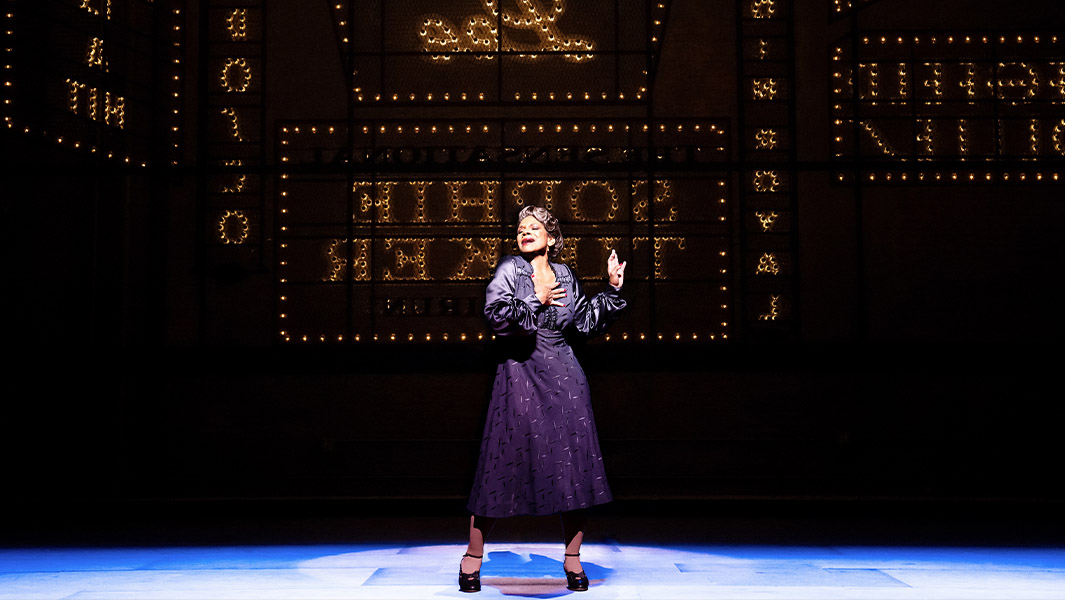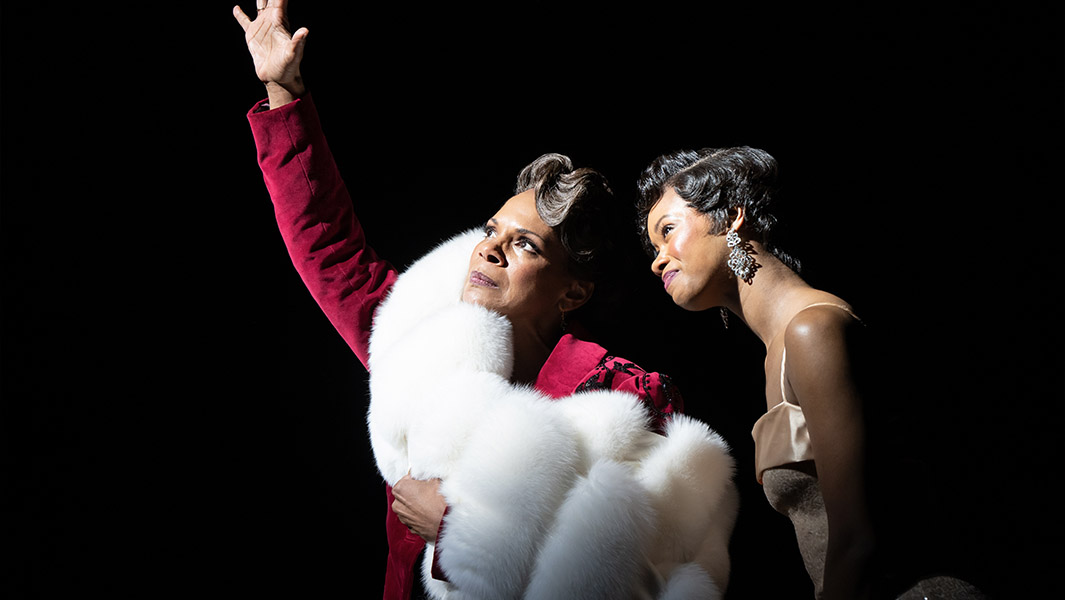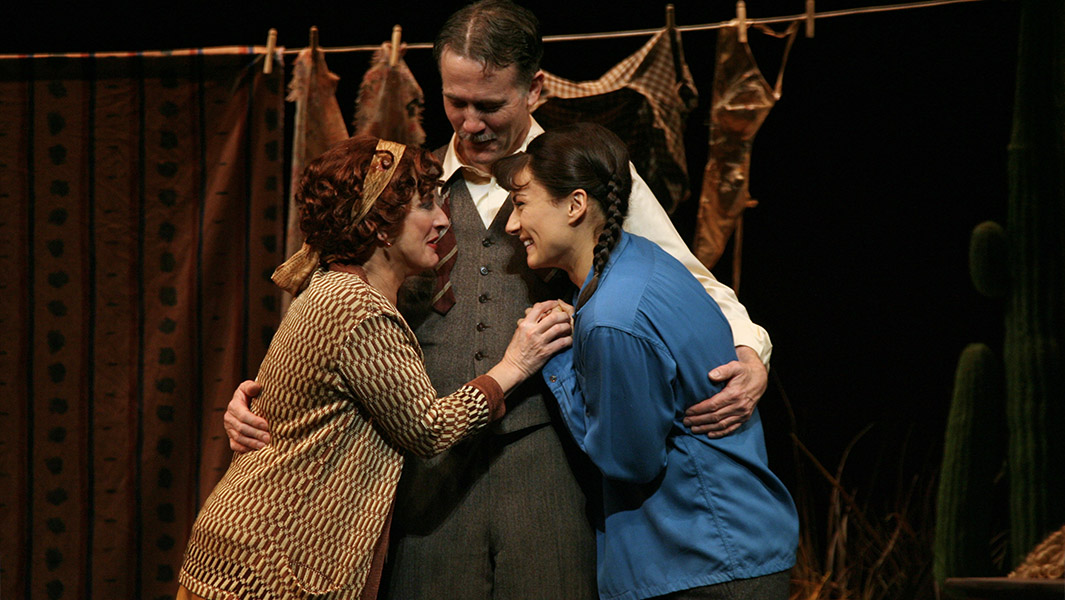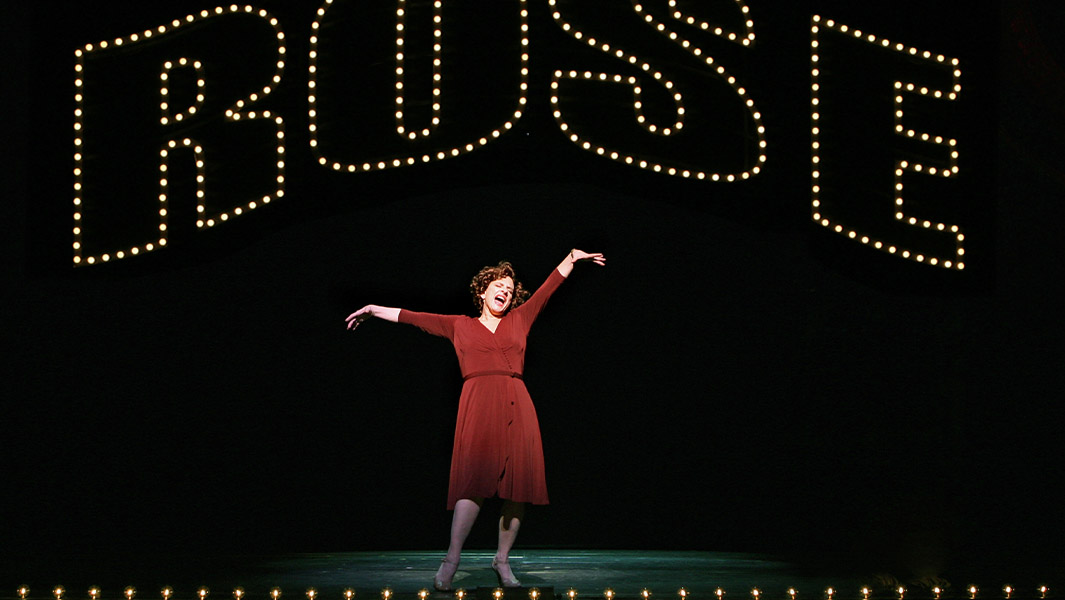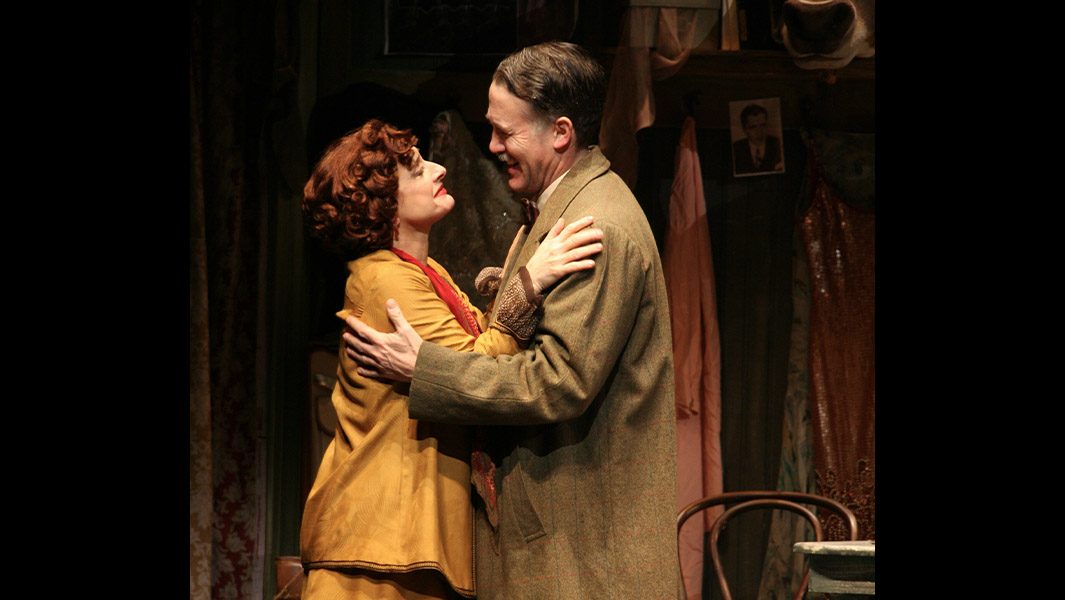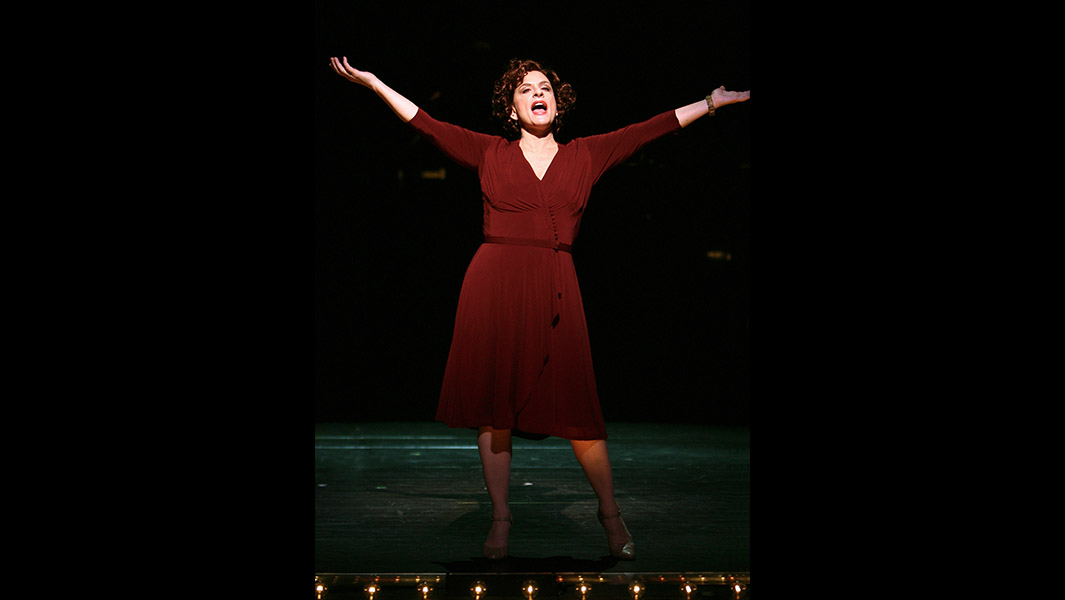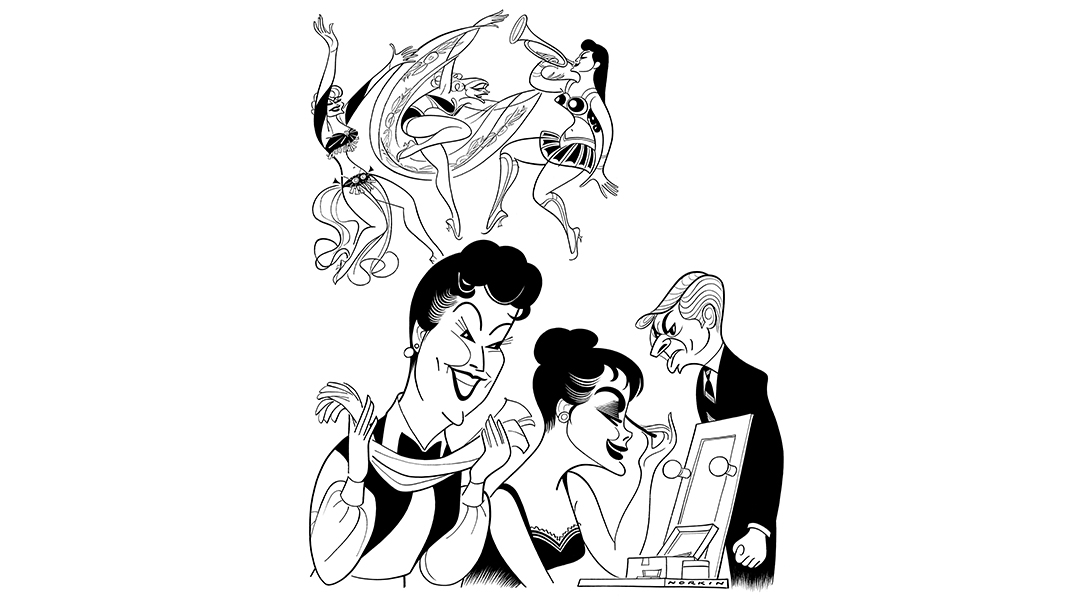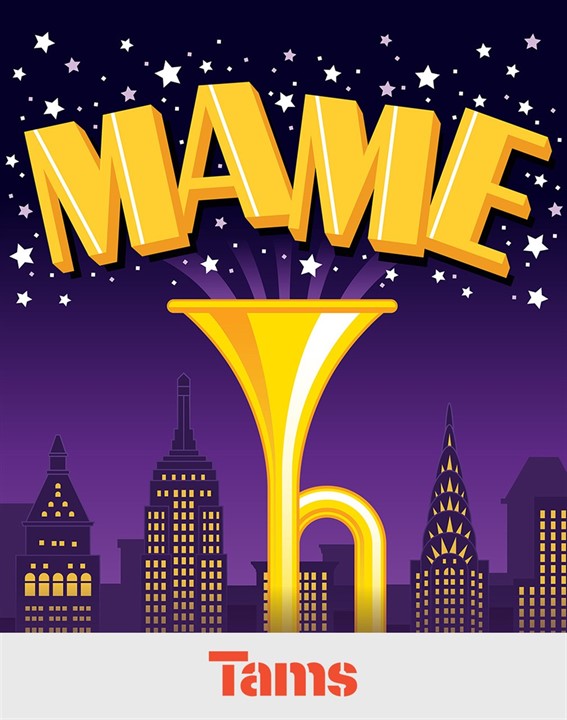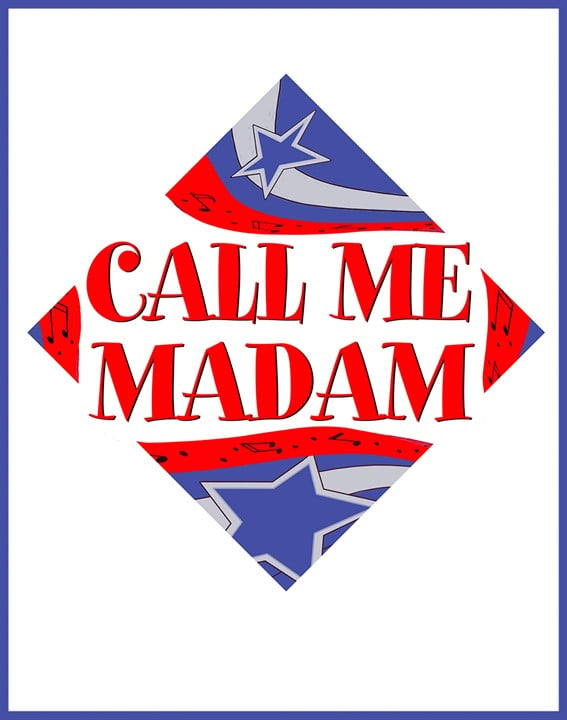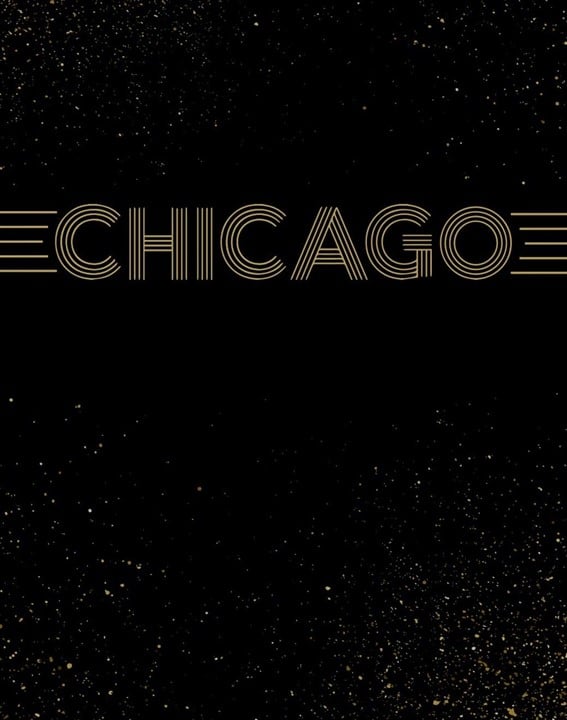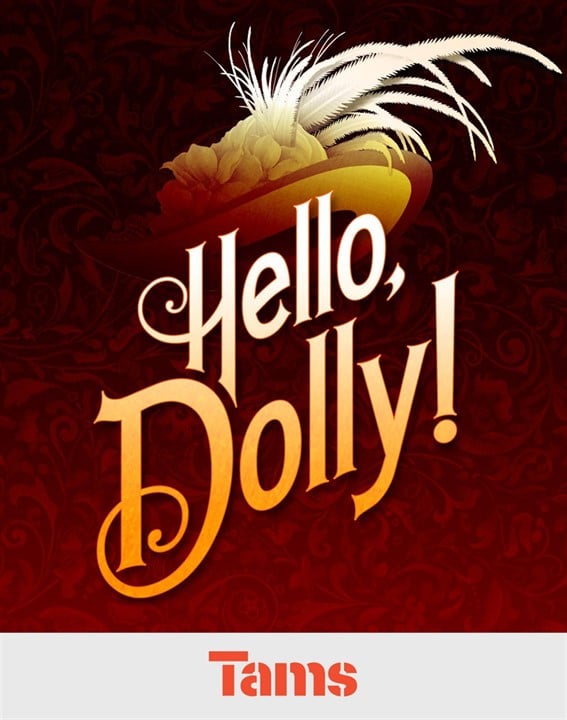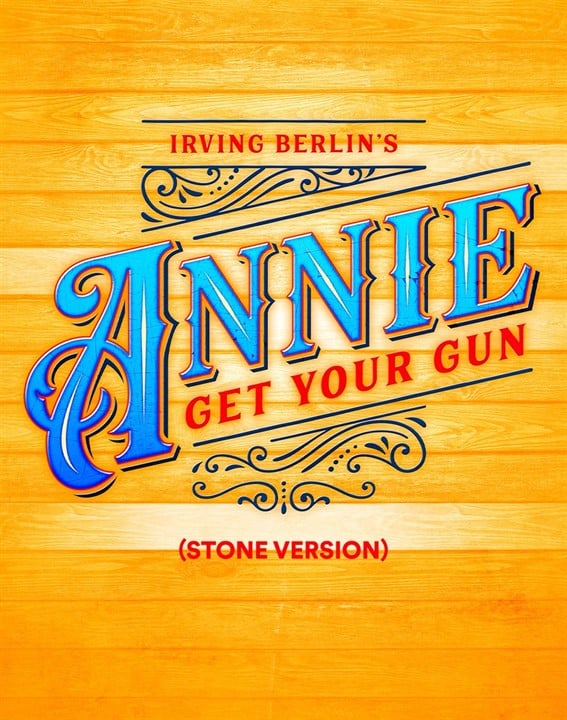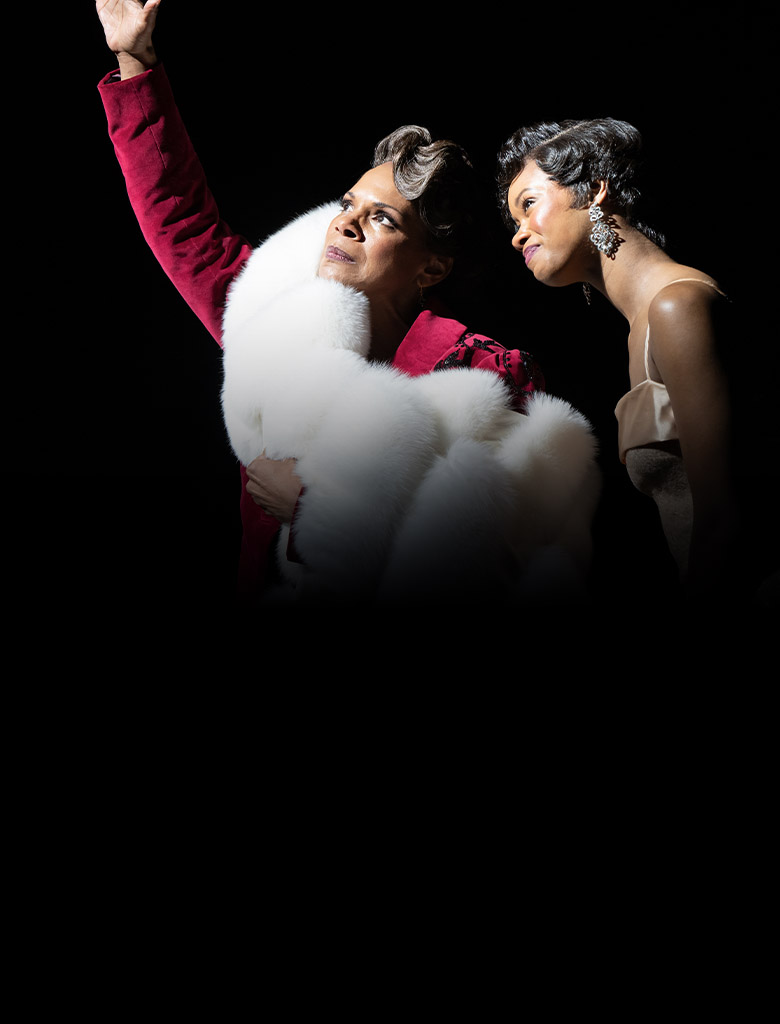
A TAMS-WITMARK TITLE
Gypsy
Full-Length Musical, Dramatic Comedy / 8w, 2m plus ensemble
A Musical Fable
Book by Arthur Laurents
Music by Jule Styne
Lyrics by Stephen Sondheim
Suggested by the memoirs of Gypsy Rose Lee
Original
production by David Merrick & Leland Hayward
Entire production
originally directed and choreographed by Jerome Robbins
Image: 2024 Broadway Production (Julieta Cervantes)
-
Cast Size
8w, 2m plus ensemble -
Duration
More than 120 minutes (2 hours) -
Subgenre
Biography -
Target Audience
Adult, Senior, Children (Age 6-10), Pre-Teen (Age 11-13), Teen (Age 14-18)
Accolades
- Winner! 1975 Tony Award for Best Actress
Winner! Two 1975 Theatre World Awards (Zan Charisse and John Sheridan)
Winner! Two 1990 Tony Awards, for Revival and Actress
Winner! Two 1990 Drama Desk Awards, for Revival and Actress
Winner! Two 1990 Outer Critics Circle Awards, for Revival and Actress
Winner! Two 1990 Theatre World Awards (John Lambert and Crista Moore)
Winner! 2003 Theatre World Award (Tammy Blanchard)
Winner! Three 2008 Tony Awards
Winner! Three 2008 Drama Desk Awards,
Winner! Two 2008 Outer Critics Circle Awards
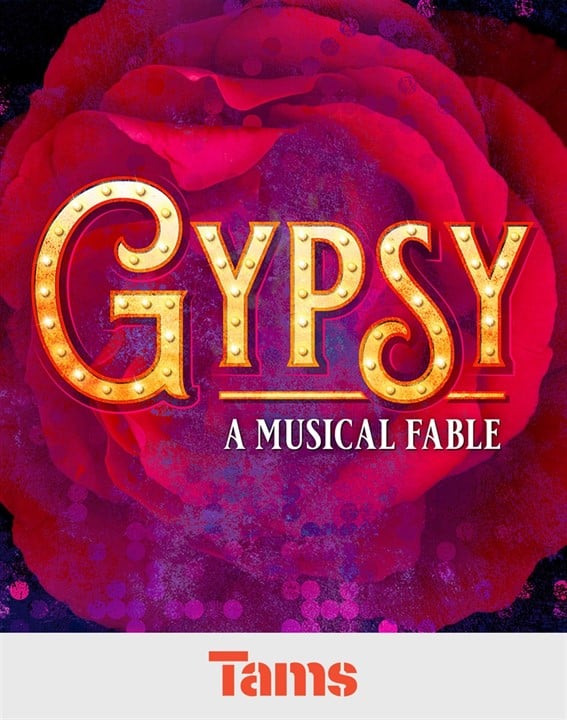
Details
Summary
Regarded by many theatre professionals as the finest musical ever created, Gypsy is the ultimate tale of an ambitious stage mother fighting for her daughters’ success – while secretly yearning for her own. Set all across America in the 1920s and 30s, when vaudeville was dying and burlesque was born, Arthur Laurents’ landmark show explores the world of two-bit show business with brass, humor, heart and sophistication.
The celebrated score by Jule Styne and Stephen Sondheim boasts one glorious hit after another, including “Everything's Coming Up Roses”, “Let Me Entertain You”, “Some People”, “You'll Never Get Away from Me”, “If Momma Was Married”, “All I Need Is the Girl”, “You Gotta Get A Gimmick”, “Small World” and “Together Wherever We Go”.
Professional Artwork Available for Your Production of Gypsy!
Concord Theatricals has collaborated with Subplot Studio to create high-quality artwork that complies with your license. Promoting your show has never been easier! Learn more at Subplot Studio.
History
- Time Period 1930s, 1920s
- Setting Various cities throughout the USA. 1920s-30s.
- Features Period Costumes
- Additional Features Animal Spot
- Duration More than 120 minutes (2 hours)
- Cautions
- Mild Adult Themes
Media
“The quintessential American musical.” – The Hollywood Reporter
“I've always had only one choice in the category of favorite musical. It is Gypsy...a wrenching fable about a tyrannical stage mother and the daughters she both champions and cripples - yet also a showcase for one classic Jule Styne/Stephen Sondheim song and rousing Jerome Robbins vaudeville routine after another.” – Frank Rich, The New York Times
“Styne’s score [is] one of the best for any show ever.” – Ben Brantley, The New York Times
“Fabulous... a testament to the power of the integrated musical in that the book by Arthur Laurents, the music by Jule Styne and the lyrics by Stephen Sondheim are all partners in a genuine coalition.” – Michael Billington, The Guardian
“Gypsy, the 1959 fable of the last days of vaudeville, shines with a magnified transparency that lets you see right down to the naked core of characters so hungry for attention that it warps them.” – Ben Brantley, The New York Times
“With its backstage shenanigans, dark-tinged striver's success story, and characters perpetually on the road, Gypsy is arguably, in thematic terms, the quintessential American musical.” – Leslie Felperin, The Hollywood Reporter
Videos
Gypsy - Savoy Theatre
"Everything's Coming Up Roses"
"Rose's Turn" - Bernadette Peters
Gypsy - 2008 Tony Awards
Photos

Image: 2024 Broadway Production (Julieta Cervantes)

Image: 2024 Broadway Production (Julieta Cervantes)

Image: 2008 Broadway Production (Joan Marcus)

Image: 2008 Broadway Production (Joan Marcus)

Image: 2008 Broadway Production (Joan Marcus)

Image: 2008 Broadway Production (Joan Marcus)

Image: Sam Norkin
Music
Music Samples
- Musical Style Classic Broadway
- Dance Requirements Moderate
- Vocal DemandsDifficult
- Orchestra Size Large
- Chorus Size Large
Licensing & Materials
- Licensing fees and rental materials quoted upon application.




